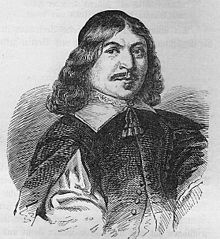Georg Neumark

Georg Neumark (16 March 1621 – 8 July 1681) was a German poet and composer of
hymns
.
Life
Neumark was born in
Königsberg, where he devoted himself more and more to music, in which he was greatly supported by Simon Dach
.
After graduating in law Neumark went first to
Wilhelm IV of Saxe-Weimar
, who appointed him Kanzleiregistrator and in 1652 librarian.
In the following year the duke brought Neumark into the
Fruchtbringende Gesellschaft. He received the nickname der Sprossende (the sprouting) and the motto
Nützlich und ergetzlich (useful and delightful), as well as the emblem Schwarzbraune gefüllte Nelken (dark-brown carnation). In 1656 he was elected Erzschreinhalter der Fruchtbringenden Gesellschaft (guardian of the shrine). His famous hymn Wer nur den lieben Gott läßt walten appeared in 1641.
The
Pegnitz) accepted Neumark as a member in 1679. He carried on an extensive but not untroubled correspondence with the society's president, Sigmund von Birken
, who acted as his literary agent.
A writer of both sacred and secular poetry, he was considered one of the more imaginative composers of continuo songs of
Baroque Music in Germany, with mostly secular texts, and some melodies considered the best of his time. Many songs have violin and gamba obbligatos and ritornellos, in which he likely played the gamba in his presentations of the songs. His choral Wer nur den lieben Gott lässt walten appears in Bach's cantata Gott ist uns`re Zuversicht, BWV 197.[1]
On 8 July 1681, Neumark died at the age of 60 in
Evangelical Church
marks his memorial on 9 July.
Selected works
- Wer nur den lieben Gott läßt walten, 1641, his most famous hymn, used by Johann Sebastian Bach in 1724 for his chorale cantata Wer nur den lieben Gott läßt walten, BWV 93
- Poetisch- und Musikalisches Lustwäldchen, Hamburg 1652
- Fortgepflantzter Musikalisch-Poetischer Lustwald, Jena 1657
- Christlicher Potentaten Ehren-Krohne, Jena 1675
- Poetisch-Historischer Lustgarten, Frankfurt/Main 1666
- Poetische Tafeln, oder gründliche Anweisung zur deutschen Verskunst, Nürnberg 1668
- Der Neu-Sprossende Teutsche Palmbaum, Nürnberg 1669
- Thränendes Haus-Kreutz, Weimar 1681 (Digitalisat)
References
- ISBN 0-333-23111-2.
Further reading
- Gottfried Claussnitzer: Georg Neumark. Ein Lebens- und Literaturbild aus dem siebzehnten Jahrhundert. Diss., Universität Leipzig 1924
- Hans Friese: Wer nur den lieben Gott lässt walten. Georg Neumark und sein Lied. Evangelische Verlags-Anstalt, Berlin 1960
- Franz Knauth: Georg Neumark nach Leben und Dichten. Beyer, Langensalza 1881
- Michael Ludscheidt: Georg Neumark (1621–1681). Leben und Werk. Winter, Heidelberg 2002, ISBN 3-8253-1361-1(zugl. Dissertation der Univ. Jena, 2000)
Bibliographies
- ISBN 3-7772-9122-6
External links
- Biography at Bach-cantatas.com
- Free scores by Georg Neumark in the Choral Public Domain Library (ChoralWiki)
